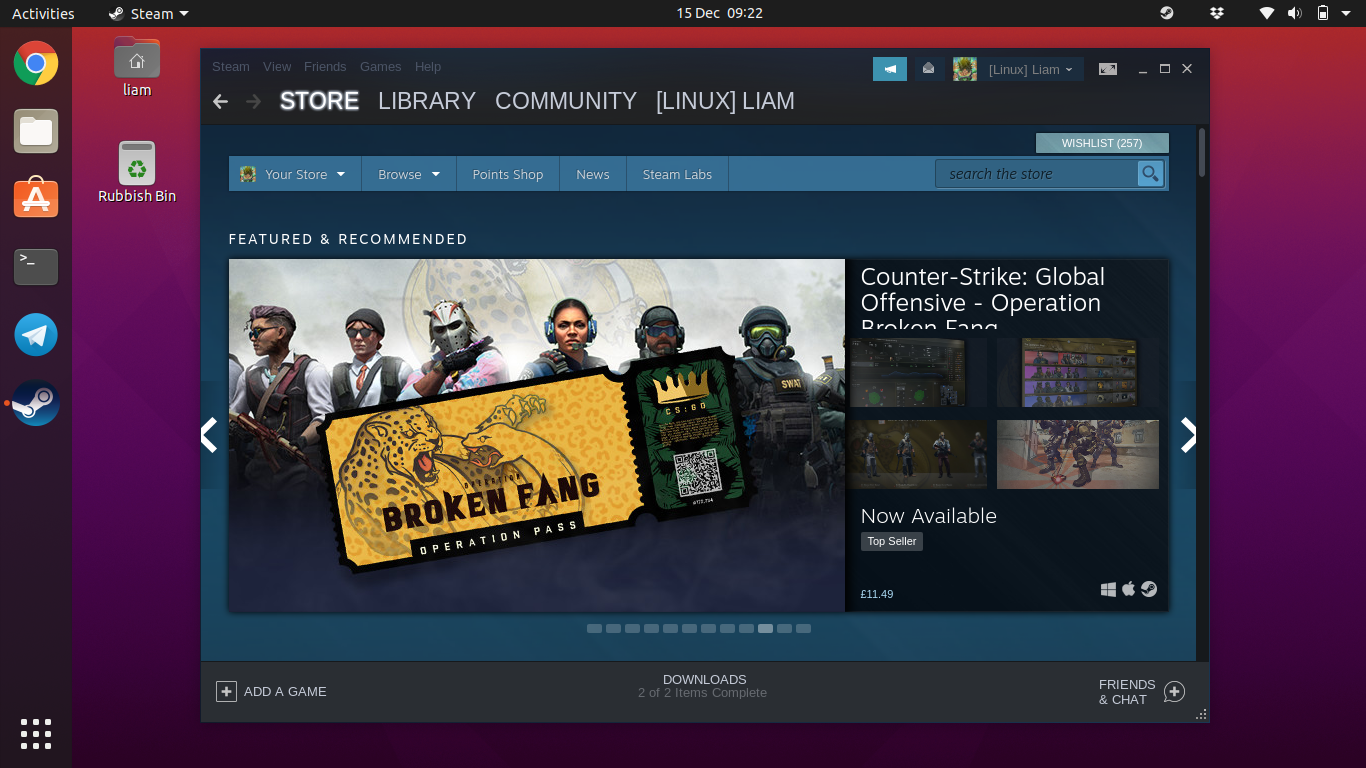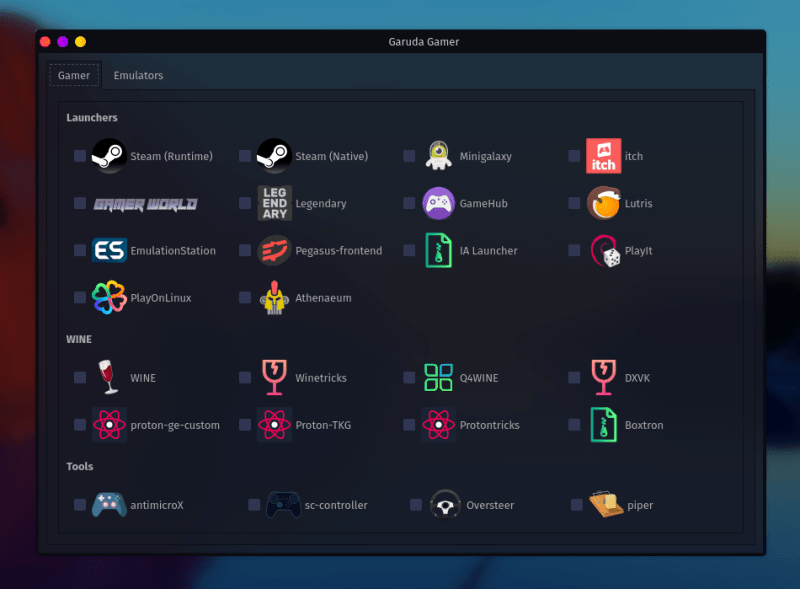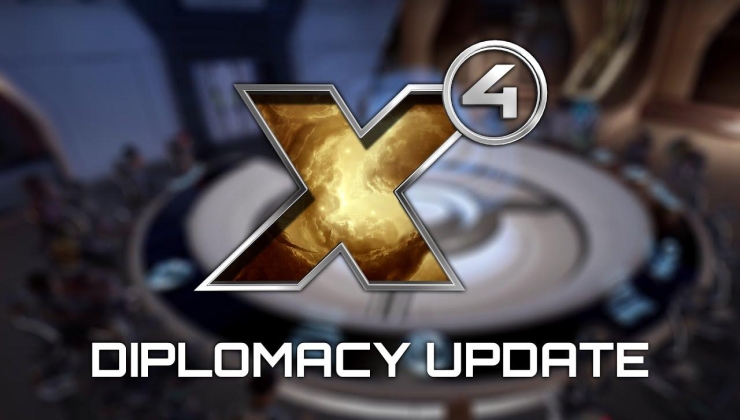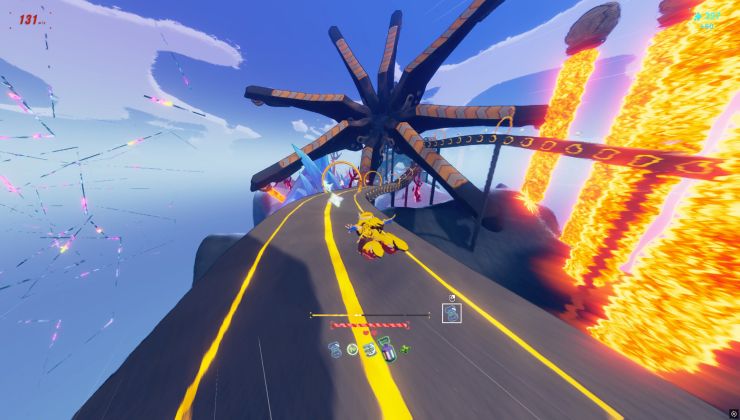For newer Linux users or people looking to switch, it can be a minefield to try and find accurate and up to date info on what Linux distro to game with. Here to help. What is the best Linux distribution for gaming? It's actually not a tough question.
With how far Linux has come in only the last 2 years, you can play a seriously large amount of games now. Sadly, there's some (quite a lot actually) places out there that seem to slap a new date on old crusty articles and give really bad Linux gaming advice. Most of the people writing these types of articles elsewhere clearly don't use Linux - I do, and I have done for around 15 years now.
Let's start off with what not to do shall we? First off, don't bother with SteamOS from Valve. Currently, it's out of date and has been for some time now. It hasn't been properly updated since 2019! Valve are not working on it but they might return one day. Anyone suggesting it likely has no idea what they're talking about and any website listing it is junk.
Next: Ubuntu GamePack or any "specialized" Linux gaming distribution. You can throw almost all of those types in the trash. They really don't do anything normal Linux distributions don't do already and they can often introduce their own special bugs. I consider them like the old discs you would find in the bargain bin in a local PC store. You really don't need them, don't waste your precious time.
So what to actually install at the end of 2020 and in 2021 to game on Linux?
The answer is actually really simple, it's not a long list and you have two really easy choices: Ubuntu or Pop!_OS. With their LTS versions (Long Term Support), you can use them as a safe bet for years.
 Pictured - Ubuntu 20.04 running Steam on my laptop.
Pictured - Ubuntu 20.04 running Steam on my laptop.
Why those? Well, Ubuntu is almost always the most widely used Linux distribution by normal desktop users. On Steam, it has always been on top as the most used distribution by gamers - there's an obvious reason for that too — it works. It's what I always recommend to newer users because it's like a warm cuddly Linux blanket. It's easy to find answers for, and it's not complicated to use. As for Pop!_OS, it's based on Ubuntu and since System76 sell desktop Linux hardware with it you can be sure it's also well tested.
If you do want a specialized distribution, perhaps for a console like experience that SteamOS was supposed to offer then take a look at ChimeraOS. It offers up a good big-screen experience for Steam.
Apart from that, everything you need can be easily installed directly on Ubuntu. Steam for the biggest library of Linux compatible games and for the Steam Play Proton compatibility layer for playing Windows games on Linux, Minigalaxy for GOG games, RetroArch for emulation, itch.io has their own client too for lots of indie gems and the Lutris game manager for everything else. It's really easy to get going too, on Ubuntu you just need to open up Ubuntu Software and search for Steam and it does it for you.
Don't make it complicated for yourself. I say all this as an Arch Linux user, which is a bit of a long-running joke about you always knowing who an Arch user is as they will tell you - and oops, I just fell into it. I'm saying it for good reason though! I have been through Arch Linux, Manjaro, Fedora and more and I still consider Ubuntu to be the number 1 Linux distribution for getting going quickly especially if you're not too comfortable yet.
Keep in mind that just as macOS and Windows do have plenty of issues, so does Linux. Don't expect perfection, be prepared to learn a bit and do things differently. If you need help, we have plenty of resources available for you. We have: a Forum, a Discord, IRC, Matrix, Telegram. You will find answers across there, with the Forum being the best way because search engines pick up answers from forums and do not from social chats like Discord.
Lastly - have fun and keep on gaming on Linux.
Debian stable with backports works also extremely well, you should give it a bet (especially since Ubuntu is Debian-based although now it's very different from Debian due to its bloat.Sounds like Bullseye is moving along nicely and will become stable in the next few months, so there is that.
Though that usually means the unstable branch will earn it's name. It's usually in that transition from Testing -> Stable where unstable gets the flood of experimental packages into it.
Fun story about that was the recent libgcrypt vulnerability, which for some reason people had flagged Debian as being vulnerable, even though they had A) already patched the version in experimental, and B) who would grab such a library from experimental anyhow?
Either way, Debian is a fantastic Distribution for just about anything, gaming included. You just need to know the secret sauce to setting it up.
dpkg --add-architecture i386
Either way, Debian is a fantastic Distribution for just about anything, gaming includedThis.
You just need to know the secret sauce to setting it upThe sauce can simply be MX-Linux, Debian prêt-à-porter.
Steam and all their DRM can jump off a cliff tho.
To be fair, the only things I do after a debian install to make it 'gaming ready' are the followingEither way, Debian is a fantastic Distribution for just about anything, gaming includedThis.
You just need to know the secret sauce to setting it upThe sauce can simply be MX-Linux, Debian prêt-à-porter.
sed -i '/main/main\ non\-free\ contrib/g' /etc/apt/sources.list
dpkg --add-architecture i386
apt update
apt install nvidia-driver steamThen if I feel the need, I'll edit /etc/default/grub to add 'splash' to the grub command line, and run update-grub. Then you'll have the splash screen if you want to make it neat for someone else. Of course if you don't have an nvidia card, you don't need to install that. Of course if you prefer lutris over steam, that's now in the repos (though you'd have to enable backports for buster to get it, which you should probably do anyhow. Though Bullseye should be releasing in the coming months).
To be fair, the only things I do after a debian install to make it 'gaming ready' are the following
Yes!
... and happy 6 years cake day!
Indeed! After that it basically lasts forever. I'd had the same install for years and years, and the only reason I re-installed was due to going from 32bit to 64bit... and even then, there was a way to upgrade that way, it was just kind of a pain. But I've had the same install on my server since then.To be fair, the only things I do after a debian install to make it 'gaming ready' are the following
Yes!
... and happy 6 years cake day!
Indeed! After that it basically lasts forever. I'd had the same install for years and years, and the only reason I re-installed was due to going from 32bit to 64bit... and even then, there was a way to upgrade that way, it was just kind of a pain. But I've had the same install on my server since then.
I had given up my old Debian install after, dunno, 15 years or so, because the X server couldn't cope with a very outdated config file entry. I'm still not sure if it was luck or bad luck that I only found out afterwards. I guess a fresh install every decade is ok. ;)
Ha, on my desktop I will play around with other distros occasionally. Mainly because I get bored of the stability in Debian... even though I run Sid there!Indeed! After that it basically lasts forever. I'd had the same install for years and years, and the only reason I re-installed was due to going from 32bit to 64bit... and even then, there was a way to upgrade that way, it was just kind of a pain. But I've had the same install on my server since then.
I had given up my old Debian install after, dunno, 15 years or so, because the X server couldn't cope with a very outdated config file entry. I'm still not sure if it was luck or bad luck that I only found out afterwards. I guess a fresh install every decade is ok. ;)
Kinda strange to mention Ubuntu but not the better alternative Linux Mint. Since starting with Mint, I've never had the urge to distro hope again. It simply works.
Steam and all their DRM can jump off a cliff tho.
Mint is kind of Ubuntu + some extra packages, not a complete distribution on its own.
So you can consider it as included.
What Mint does is they add the Ubuntu repositories and their own, where packages not in Ubuntu, or in some cases a bit different than was Ubuntu does.
Here are the number of available deb packages on a Mint 20 install I have with no extra repositories added:
grep ^Package /var/lib/apt/lists/*ubuntu*_Packages |awk '{print $2}'|sort -u|wc -l
62917
grep ^Package /var/lib/apt/lists/packages.linuxmint*_Packages |awk '{print $2}'|sort -u|wc -l
461That is a factor of 136 more debs available from Ubuntu than from Mint when you install Mint, or put in another way over 99% of available packages are from Ubuntu.
Mint does not provide kernel, system libraries like glibs, perl, python and java support or snap or flatpak, Nvidia drivers and mesa, those are all from Ubuntu.
What Mint does is provide some good desktop environment and some utility programs, but not a complete distribution, they rely on Ubuntu, or Debian for LMDE.
Last edited by Redface on 10 Mar 2021 at 7:53 pm UTC
What Mint does is provide some good desktop environment and some utility programs, but not a complete distribution, they rely on Ubuntu, or Debian for LMDE.Mint is based on Ubuntu just like Manjaro is based on Arch. But all four of these are distributions by definition. Whether they're "complete" enough to pass your purity test doesn't really matter.
Indeed! After that it basically lasts forever. I'd had the same install for years and years, and the only reason I re-installed was due to going from 32bit to 64bit... and even then, there was a way to upgrade that way, it was just kind of a pain. But I've had the same install on my server since then.
I had given up my old Debian install after, dunno, 15 years or so, because the X server couldn't cope with a very outdated config file entry. I'm still not sure if it was luck or bad luck that I only found out afterwards. I guess a fresh install every decade is ok. ;)
I had a really long running Debian install back in the day. Mostly running sid, aka unstable since the stable releases always where years delayed back then. When it was close to a release I changed it to follow testing to help test it, and then once it was release the software was kind of old for a desktop. And testing then after a new stable release was a big mess for months due to a lot of transitions that where hold back due to the long freeze, so I switched to unstable again :-)
And rinse repeated that a couple of cycles over the years.
Then Ubuntu was announced to be coming soon with a at that time revolutionary release concept: release when its time, instead of release when its ready. Since there is always that one program which should get next version, or this or that bug that needs to be fixed, And stuff can be updated after release.
I installed Ubuntu 4.10 Warty Warthog and stayed on Ubuntu as my main OS since then.
My desktop which is currently running Hirsute that will release as 21.04, was installed as Ubuntu 12.10. On another disk and in another PC, I converted it to GPT and UEFI when I transferred it to its current SSD.
Linux, and especially apt based systems are just amazing.
What Mint does is provide some good desktop environment and some utility programs, but not a complete distribution, they rely on Ubuntu, or Debian for LMDE.Mint is based on Ubuntu just like Manjaro is based on Arch. But all four of these are distributions by definition. Whether they're "complete" enough to pass your purity test doesn't really matter.
As far as I know Manjaro build the binary packages in their repositories them self, the source comes from Arch but is then "hold" back a while to see if bugs are found. But I could be wrong, I never looked that close at Manjaro. They do have their own repositories though, if you do not add the AUR or another external repository then you get your packages from Manjaro servers or mirrors.
Mint does add the Ubuntu repositories in addition to their own. When you remove the Ubuntu repositories on a Mint then you will not get any get any updates for the kernel, gnu libraries, Mesa, Xorg etc, and you will not be able install any of the packages from Mint repositories that depend on packages in Ubuntu repositories not installed yet. That would be stupid though to break a system like that.
And I do not write that from a purity perspective. It is a good way ensure binary compatibility with the Ubuntu LTS the Mint packages from that release are build on.
When someone distributes binary programs build and tested for Ubuntu then those will work on Mint too, because all dependencies on that Mint system need then come from Ubuntu. Mint is over 99% Ubuntu after all, looking at available packages, on a fresh install the percentage from Mint is higher, but still crucial components like the kernel are from Ubuntus repositories.
Last edited by Redface on 10 Mar 2021 at 9:23 pm UTC
Well if we're going to be snippy, Ubuntu is kind of Debian "+ some extra packages, not a complete distribution on its own."Kinda strange to mention Ubuntu but not the better alternative Linux Mint. Since starting with Mint, I've never had the urge to distro hope again. It simply works.
Steam and all their DRM can jump off a cliff tho.
Mint is kind of Ubuntu + some extra packages, not a complete distribution on its own.
So you can consider it as included.
I still have my Warty Warthog CDs (remember they offered to send you free ones?). Ubuntu started going in directions I didn't like, so I remain a Debian user. Also now that Debian has backports, it's far easier to keep running Stable without being too old.Indeed! After that it basically lasts forever. I'd had the same install for years and years, and the only reason I re-installed was due to going from 32bit to 64bit... and even then, there was a way to upgrade that way, it was just kind of a pain. But I've had the same install on my server since then.
I had given up my old Debian install after, dunno, 15 years or so, because the X server couldn't cope with a very outdated config file entry. I'm still not sure if it was luck or bad luck that I only found out afterwards. I guess a fresh install every decade is ok. ;)
I had a really long running Debian install back in the day. Mostly running sid, aka unstable since the stable releases always where years delayed back then. When it was close to a release I changed it to follow testing to help test it, and then once it was release the software was kind of old for a desktop. And testing then after a new stable release was a big mess for months due to a lot of transitions that where hold back due to the long freeze, so I switched to unstable again :-)
And rinse repeated that a couple of cycles over the years.
Then Ubuntu was announced to be coming soon with a at that time revolutionary release concept: release when its time, instead of release when its ready. Since there is always that one program which should get next version, or this or that bug that needs to be fixed, And stuff can be updated after release.
I installed Ubuntu 4.10 Warty Warthog and stayed on Ubuntu as my main OS since then.
My desktop which is currently running Hirsute that will release as 21.04, was installed as Ubuntu 12.10. On another disk and in another PC, I converted it to GPT and UEFI when I transferred it to its current SSD.
Linux, and especially apt based systems are just amazing.
Yeah, they just do a better job at renaming every package with +ubuntu in it!Well if we're going to be snippy, Ubuntu is kind of Debian "+ some extra packages, not a complete distribution on its own."Kinda strange to mention Ubuntu but not the better alternative Linux Mint. Since starting with Mint, I've never had the urge to distro hope again. It simply works.
Steam and all their DRM can jump off a cliff tho.
Mint is kind of Ubuntu + some extra packages, not a complete distribution on its own.
So you can consider it as included.

And this is an old picture, there is even more stuff there now:
[https://youtu.be/KK280Y0cNmQ?t=593](https://youtu.be/KK280Y0cNmQ?t=593)









 How to set, change and reset your SteamOS / Steam Deck desktop sudo password
How to set, change and reset your SteamOS / Steam Deck desktop sudo password How to set up Decky Loader on Steam Deck / SteamOS for easy plugins
How to set up Decky Loader on Steam Deck / SteamOS for easy plugins
See more from me